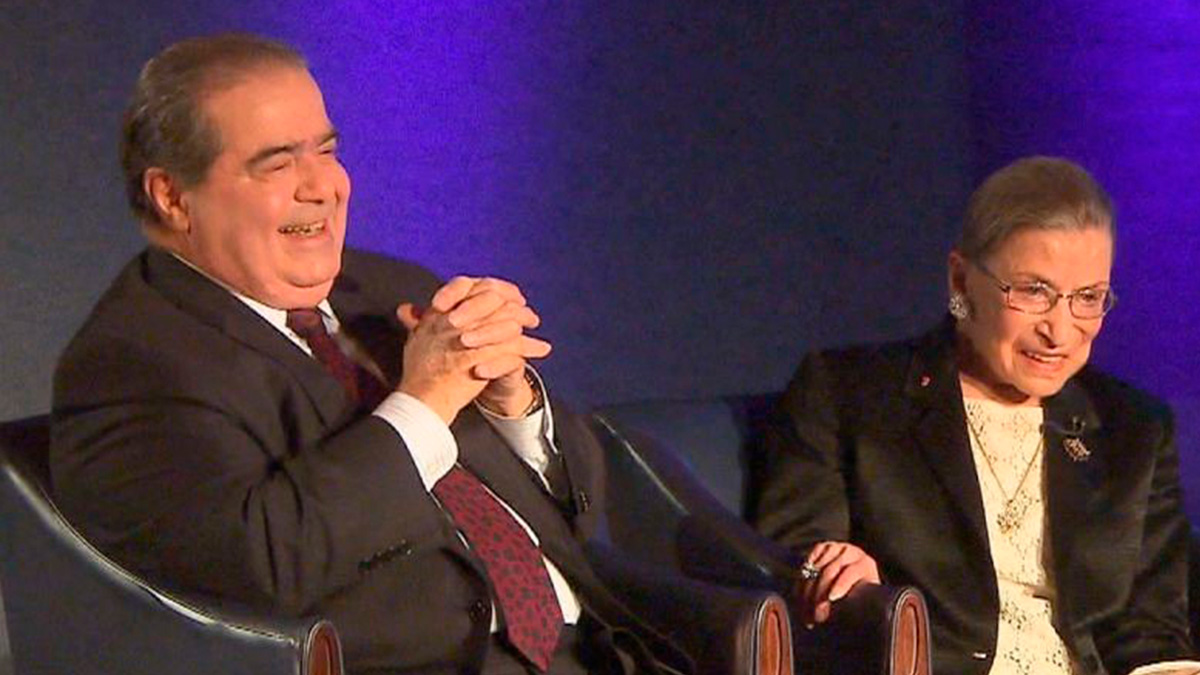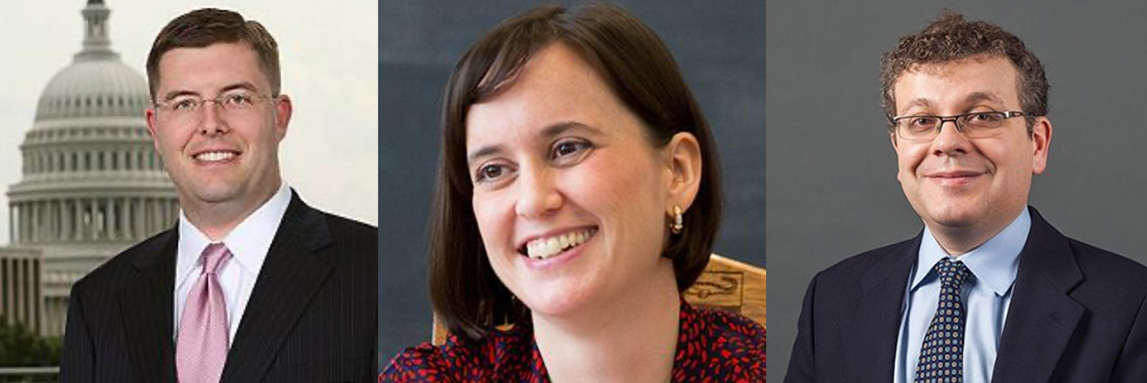
- This event has passed.
Scalia-Ginsburg Colloquy: U.S. Immigration Policy

The George Mason University Antonin Scalia Law School invites you to its sixth Scalia-Ginsburg Colloquy, which will examine U.S. immigration policy.
The Colloquy, which will be held online from 5:30 – 6:45 p.m. EDT on Wednesday, March 26, brings together two constitutional law experts who will analyze this important topic.

Ryan Newman is general counsel to Florida governor Ron DeSantis. During the first Trump administration, he served as counselor to the United States attorney general for national security and international affairs, deputy general counsel (legal counsel) for the Department of Defense, and acting assistant attorney general for the Office of Legal Policy at the Department of Justice. He also served as a law clerk to the Honorable Samuel A. Alito, Jr. on the United States Supreme Court.
Cristina M. Rodríguez is the Leighton Homer Surbeck Professor of law at Yale Law School. Her fields of research and teaching include constitutional law and theory, immigration law and policy, administrative law and process, and citizenship theory. In 2021, she was appointed by President Biden to co-chair the Commission on the Supreme Court of the United States. She was a law clerk to the Honorable Sandra Day O’Connor on the United States Supreme Court.
Scalia Law Professor Craig S. Lerner will moderate the Colloquy. He teaches and writes in the areas of criminal law and criminal procedure. Before joining the faculty, Lerner was an associate independent counsel in the Office of Independent Counsel during the Whitewater investigation. He also clerked for the Honorable James L. Buckley of the U.S. Court of Appeals for the District of Columbia Circuit.
The inspiration for the Colloquy grew out of the enduring friendship between the late U.S. Supreme Court Justices Antonin Scalia and Ruth Bader Ginsburg. Their legendary camaraderie survived despite their sharp differences on the bench.
Drawing from their example, Scalia Law established the Colloquy with the generous support of the Scalia and Ginsburg families. It serves as a platform for renowned scholars to engage in substantive, yet civil, discussions covering various facets of significant legal issues.